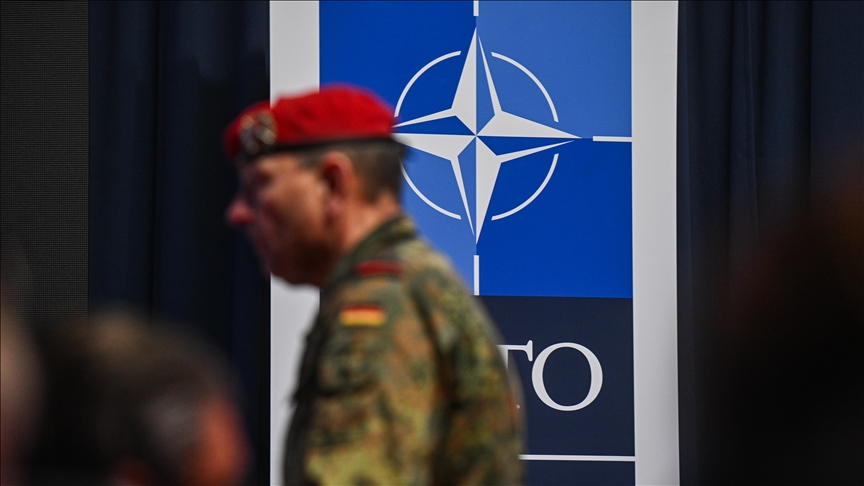German opposition parties reject sending peacekeeping troops to Ukraine
Far-right AfD party accuses government of taking 'dangerous' steps, while socialist Left Party opposes NATO troop deployment to Ukraine, proposes UN peacekeeping mission instead

BERLIN
Germany's consideration of sending troops to Ukraine as part of a peace agreement with Russia has sparked debate among domestic politicians, with opposition parties strongly rejecting the plan.
The far-right Alternative for Germany (AfD) party, currently leading in polls, has sharply criticized Chancellor Friedrich Merz's conservative CDU/CSU alliance for considering the deployment of German troops in Ukraine alongside other European forces.
"The hawks in the CDU can hardly wait to send German soldiers to foreign war zones again," AfD co-chair Alice Weidel said on social media, warning the government against taking such an "irresponsible" step that could have "dangerous" consequences for the country.
The socialist Left Party also voiced opposition to deploying German troops in Ukraine as part of a NATO initiative, suggesting instead a peacekeeping mission under the United Nations' authority.
"Ukraine urgently needs concrete security guarantees in case of a peace agreement with Russia. However, these should absolutely be decided and implemented within the framework of the United Nations," Left Party co-chair Jan van Aken said in a statement.
"The notion that security guarantees can only exist with NATO soldiers at the Russian-Ukrainian border is wrong and dangerous," he warned, pointing to historical precedents where small border conflicts and misunderstandings have escalated into major confrontations.
Following talks with US President Donald Trump and European leaders on Monday, German Chancellor Friedrich Merz expressed openness to Berlin joining a possible peacekeeping mission in Ukraine.
Merz stressed that Germany bears "a great responsibility" to participate in these efforts, though he noted that final decisions would depend on consultations with European partners and his coalition government. "It is absolutely clear that the whole of Europe should participate. After all, this isn't just about Ukraine's territory; it's about Europe's political order," he said.
Merz faces widespread skepticism about sending German troops to Ukraine not only from opposition parties but also from within his own conservative bloc and his coalition partner, the Social Democrats (SPD).
CDU deputy leader and Saxony's Premier Michael Kretschmer voiced his opposition to deploying German troops in Ukraine on Wednesday. "German soldiers fighting in Ukraine should not be a topic of discussion," the CDU politician told Spiegel magazine.
He stressed that Germany cannot guarantee Ukraine's security alone, noting that the German armed forces currently lack the capacity to take on such a role in the country.
The SPD's foreign policy spokesman and lawmaker Adis Ahmetovic has not ruled out the possible participation of German troops to a peacekeeping mission in Ukraine, but underlined that much would depend on the upcoming talks between Americans and Europeans. "There must be reliable security guarantees for Ukraine from the US. After that, Germany's and the EU's support can be specified. At this point in time, nothing should be ruled out," he told local media.
However, senior SPD lawmaker Ralf Stegner clearly opposed the Bundeswehr participating in a military mission to secure a potential ceasefire. "Germany should stay out of this question. The deployment of German soldiers in the region is extremely difficult, also for historical reasons. This is not something that can be demanded just like that," the lawmaker said.








